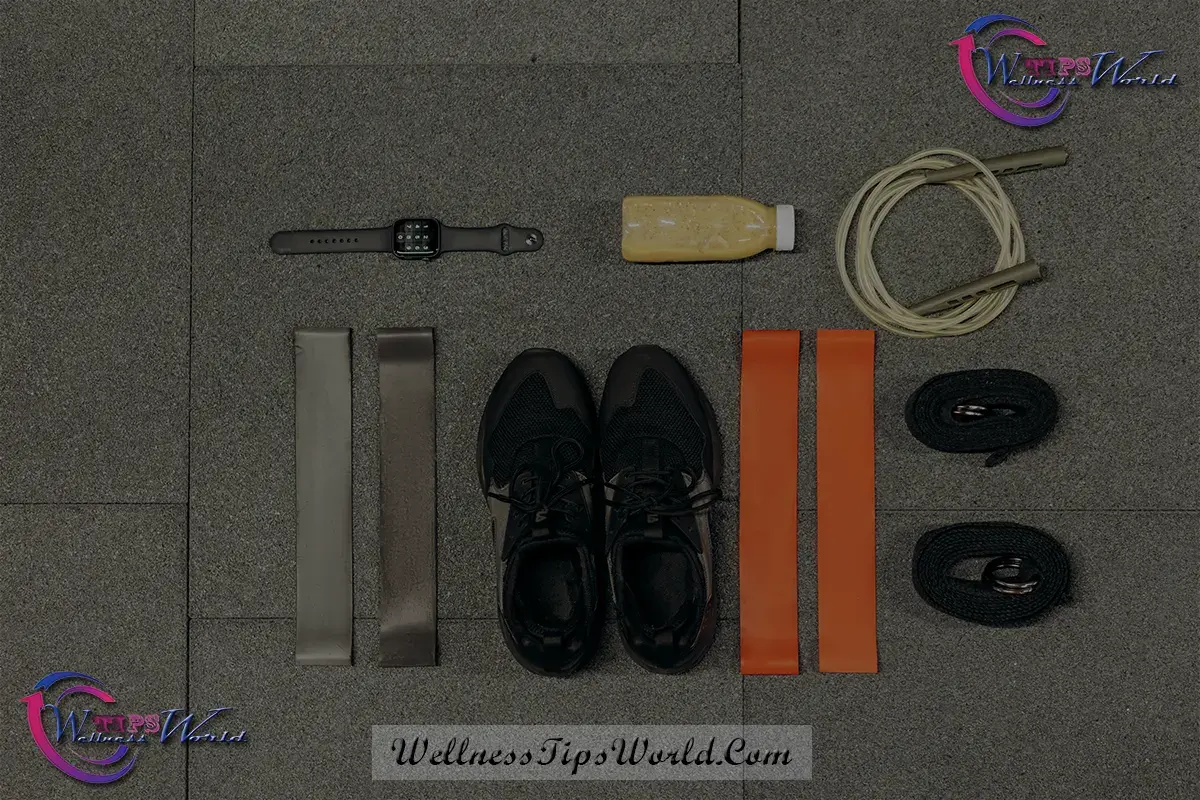Transform Your Body: 7 Proven Weight Loss Tips for Lasting Results
-
99
- 06 Apr, 2025

Have you ever tried to lose weight, only to see the results fade away after a few weeks? You’re not alone. Achieving lasting weight loss requires more than just quick fixes or fad diets. Transforming your body is a gradual process that requires patience, consistency, and the right approach. The good news is that with a few proven weight loss tips, you can achieve sustainable results and finally reach your goals.
In this article, we’ll share 7 simple and proven weight loss tips that will help you lose weight, keep it off, and build healthier habits for the long term. These tips focus on both nutrition and exercise to ensure that you don’t just lose weight—you transform your body in a way that’s maintainable and healthy.
What You’ll Learn:
- The best strategies for achieving lasting weight loss.
- How to combine diet and exercise for maximum fat burn.
- How to avoid common weight loss mistakes that can hinder your progress.
- How to make small, sustainable changes that lead to long-term success.
Let’s dive in and explore how you can transform your body with these simple yet effective weight loss tips!
1. Prioritize Protein for Weight Loss
When it comes to weight loss, protein is one of the most important macronutrients. Eating enough protein not only helps to build lean muscle mass but also keeps you fuller for longer, making it easier to control your hunger and reduce unnecessary snacking.
Why Protein Is Essential for Weight Loss:
Increases Satiety: Protein-rich foods trigger the release of hormones that promote a feeling of fullness, helping you eat fewer calories throughout the day.
Supports Muscle Mass: When you lose weight, you risk losing muscle along with fat. Protein helps you maintain and even build muscle, which boosts metabolism.
Boosts Metabolism: The body uses more energy to digest protein compared to fats and carbohydrates, leading to increased calorie burn.
High-Protein Foods to Include:
- Chicken breast, turkey, lean beef
- Fish like salmon and tuna
- Eggs, Greek yogurt, cottage cheese
- Beans, lentils, and other legumes
Try to include a source of protein in every meal to help manage hunger and support muscle growth.
2. Stay Hydrated with Water
Often overlooked, staying hydrated is one of the simplest ways to support weight loss. It's Common to Confuse Thirst with Hunger, Resulting in Extra Calorie Intake. Drinking plenty of water helps you feel full and curbs appetite, while also supporting your metabolism.
How Water Supports Weight Loss:
Boosts metabolism: Drinking water before meals can increase metabolism by up to 30%, helping you burn more calories.
Reduces appetite: Water fills your stomach, leading to a reduction in the overall amount of food you consume.
Flushes out toxins: Adequate hydration aids in digestion and helps your body eliminate waste, promoting a healthier metabolism.
Aim to drink at least 8 cups of water per day, and consider drinking a glass before each meal to reduce calorie intake.
3. Focus on Whole, Unprocessed Foods
In a world full of packaged snacks and processed foods, it’s easy to get tempted. However, whole foods are packed with the nutrients your body needs without the added sugars, unhealthy fats, and artificial ingredients found in processed options. By prioritizing whole, nutrient-dense foods, you’ll fuel your body properly while supporting fat loss.
Why Whole Foods Are Important:
Nutrient density: Whole foods, such as vegetables, fruits, lean proteins, and whole grains, are packed with essential nutrients that nourish your body and help control cravings.
Better digestion: Whole foods tend to be higher in fiber, which aids digestion and keeps you feeling full for longer.
Lower calorie count: Whole, unprocessed foods are often lower in calories and free from the added sugars that contribute to weight gain.
Healthy Whole Foods to Add to Your Diet:
- Vegetables like spinach, kale, broccoli, and cauliflower
- Fruits such as berries, apples, and oranges
- Nutrient-packed grains such as quinoa, brown rice, and oats
- Healthy fats from nuts, seeds, and avocado
Quick Tip: Aim to fill half of your plate with vegetables and fruits at every meal to increase your intake of vitamins and minerals.
4. Incorporate Strength Training to Build Lean Muscle
Exercise is key to weight loss, but it’s not just about burning calories through cardio. Incorporating strength training into your routine is crucial for building muscle and increasing your metabolic rate. Muscle burns more calories than fat, so the more muscle you have, the higher your resting metabolic rate (RMR).
Benefits of Strength Training:
Increases muscle mass: More muscle means a faster metabolism, helping you burn more calories even while at rest.
Enhances fat loss: Strength training helps you burn fat while maintaining lean muscle, leading to a more toned and sculpted body.
Improves overall fitness: Building strength not only boosts metabolism but also improves posture, balance, and overall health.
Strength Training Exercises to Try:
- Bodyweight exercises like squats, push-ups, and lunges
- Dumbbell or kettlebell workouts
- Resistance band exercises
- Weightlifting or machine exercises
Aim to include 2-3 strength training sessions per week, focusing on different muscle groups each time to give your body adequate recovery.
5. Get Enough Sleep to Support Weight Loss
The importance of sleep in weight loss cannot be overstated. Lack of sleep can disrupt hormones that control hunger and satiety, leading to increased cravings and overeating. Additionally, poor sleep can slow down metabolism and hinder fat loss efforts.
How Sleep Affects Weight Loss:
Increases hunger: When you don’t get enough sleep, your body produces more ghrelin (the hunger hormone) and less leptin (the hormone that signals fullness), leading to increased hunger and cravings.
Slows metabolism: Poor sleep can lower insulin sensitivity and reduce your body’s ability to burn fat efficiently.
Impairs judgment: Lack of sleep can lead to poor food choices and overeating due to decreased willpower.
To maximize weight loss, aim for 7-9 hours of quality sleep each night. Try to establish a consistent sleep schedule and avoid caffeine or heavy meals close to bedtime.
6. Embrace Mindful Eating to Master Portion Control
Mindful eating is all about being present during your meals and paying attention to your body’s hunger and fullness cues. This practice helps you avoid overeating and fosters a healthier relationship with food. By eating slowly and without distractions, you can become more in tune with your body’s true needs.
Benefits of Mindful Eating:
Prevents overeating: By slowing down and savoring each bite, you’re more likely to stop eating once you feel full.
Improves digestion: Chewing food properly and eating slowly aids in better digestion and nutrient absorption.
Reduces emotional eating: Mindful eating helps you become more aware of why you’re eating (hunger vs. boredom or stress) and encourages healthier choices.
Tips for Mindful Eating:
- Steer Clear of Distractions, Such as TV or Phones, While Eating.
- Pay Attention to the Flavor, Texture, and Smell of Your Meal.
- Take smaller bites and chew thoroughly.
- Pause halfway through your meal to check if you're still hungry.
7. Stay Consistent and Patient
Finally, one of the most important weight loss tips is to stay consistent and patient. Weight loss is a gradual process, and results don’t happen overnight. Focus on building healthy habits that you can maintain over time, rather than seeking quick fixes or drastic measures.
How to Stay Consistent:
- Establish Practical, Attainable Goals You Can Track and Measure.
- Acknowledge and Celebrate Small Achievements to Keep Your Motivation High.
- Be kind to yourself during setbacks; consistency is more important than perfection.
The key to success is sticking with your plan and understanding that slow and steady progress will lead to lasting results.
Transforming your body is entirely possible with the right mindset, habits, and strategies. By following these 7 proven weight loss tips, you’ll be on your way to a healthier, stronger, and more confident version of yourself. Remember to prioritize protein, stay hydrated, eat whole foods, incorporate strength training, get enough sleep, practice mindful eating, and stay consistent.
Weight loss is a journey, not a sprint. Make small, sustainable changes that you can maintain for life, and the results will follow. Start today, and transform your body for good!










